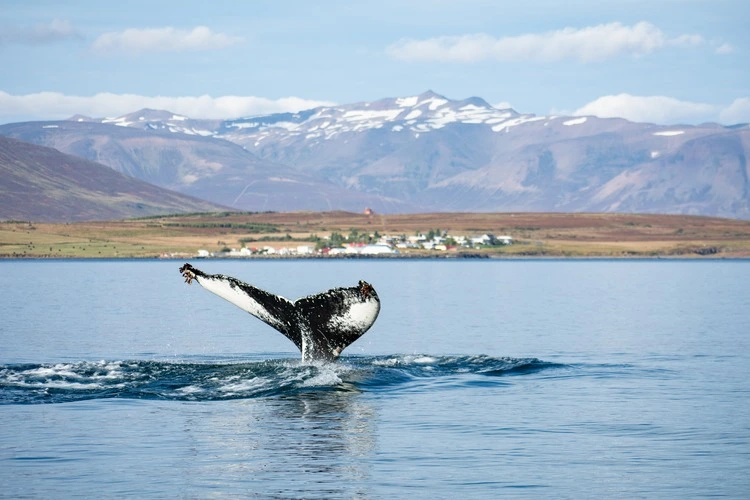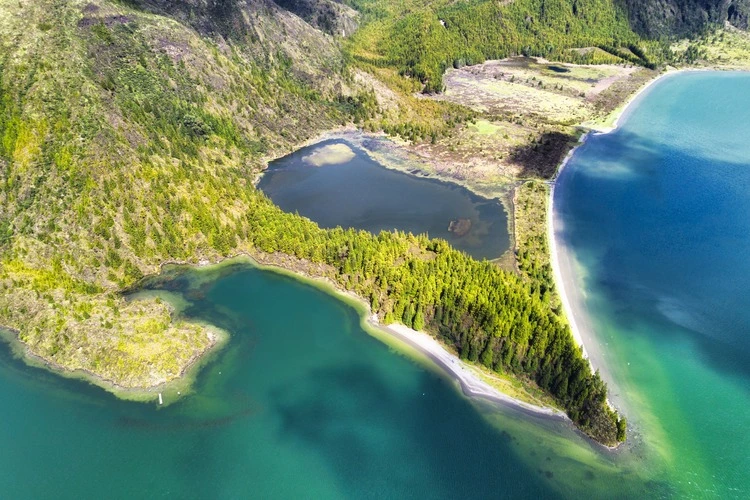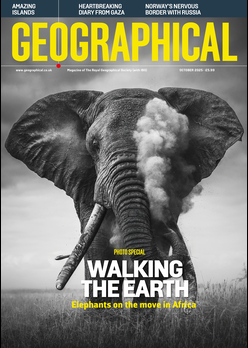
After recent Antarctic conference falls short of protecting marine life, is it possible for countries to work together for the greater good?
By
Collaboration is often the key to success. Take the landmark Montreal Protocol, the agreement signed by almost every country which phased out harmful chemicals damaging the planet’s ozone layer. Or the global campaign to eradicate polio, in which cases of the disease dropped by 99 per cent worldwide.
Such are the impacts of unified global efforts that even beyond the confines of our planet we are reaping them, in the case of the development of the International Space Station.
Enjoying this article? Check out our related reads:
But in a world that is entering into a more divided future – following the divisive election of Donald Trump as the new US President – questions arise about whether nations are still able to come together to address urgent global issues while pushing individual political agendas aside.
So, is the conservation of our planet’s most threatened species and ecosystems an achievable shared goal? Or are vetoes, alternate motivations and financial objectives preventing countries from protecting nature for generations to come?
Global efforts, individual agendas
Conservation measures have long faced difficulty in implementation, and once beginning, are often marred by factors including differences in politics, finances and outlooks.
For example, disorganisation amongst more than 20 countries involved in Africa’s Great Green Wall – an initiative created to support the growth of previously degraded land across the drylands of the Sahel in Africa – is one of the factors leading to a stall in the project’s progress.
Each country has its own individual goals to achieve, from diversifying income to reducing soil erosion, while also playing its role in the completion of the mammoth project – a dynamic that can easily overstretch individual countries’ financial and organisational constraints.

Conservation has also proven difficult off land. In recent years, Iceland has caught whales commercially after leaving – then rejoining – the International Whaling Commission (IWC). After a temporary ban on whaling earlier this year, Iceland has since resumed its commercial whaling, citing the use of better and more sustainable equipment. Critics say that, nonetheless, the deaths of any whales via the methods used – shot via grenade-tipped harpoons – are agonising and cruel.
Japan too also left the IWC in 2019 despite pressure from individuals, organisations and member states, beginning to catch whales commercially that year. The country is no longer bound by the moratorium set out by the IWC in 1982, setting out a pause in commercial whaling that still is in effect today for any current member states.
Currently, catch limits are set out by the IWC for commercial whaling, except for Norway and Iceland, highlighting again how global efforts for conservation can be difficult to implement across all countries.
Stalled, and hit a wall
Vetoes on conservation measures by countries are another way in which global efforts to protect species and ecosystems in vulnerable areas are being hampered.
Last month, in the annual meeting of The Commission for the Conservation of Antarctic Marine Living Resources (CCAMLR), China and Russia voted against a proposal for a new Marine Protected area in the Western Antarctic Peninsula, which would have increased the protected area of the Southern Ocean to 26 per cent.
The proposed MPA in Antarctica would have made huge steps in conservation, increasing genetic diversity within species and making them more resilient to the effects of climate change. Implementing an MPA would also contribute to the Kunming-Montreal Global Biodiversity Framework (GBF) of protecting 30 per cent of the world’s oceans by 2030 (the 30×30 goal), which 27 nations, including Russia and China, signed back in 2022.
In the latest CCAMLR meeting, Russia and China also blocked the renewal of a conservation measure planned to distribute krill-fishing activities within designated sub-areas to avoid overfishing. The importance of krill in ecosystems is vast, with the tiny zooplankton making up the basis of the food web for most wildlife – from whales, penguins and seabirds – in the Southern Ocean. Recent reports show that krill take is the highest on record – 415,800 tonnes from 2019 to 2023, compared to 266,000 tonnes in the previous five-year period.
Despite the obvious benefits of reducing krill fishing activities, any CCAMLR proposal must be agreed unanimously, not by a simple or weighted majority. This isn’t an unusual way for agreements to function between countries: for certain areas in the UN Security Council, unanimous voting operates between member states.
But requiring unanimous voting does mean that it makes it harder for any measure to go through.
When unanimous voting isn’t reached, and countries do decide to block a measure – like in the case of China and Russia – it could be for a variety of reasons. These are often not necessarily related to the issue itself, but as part of a wider geopolitical negotiation or assertion of power, as Associate Professor of Law at University of Plymouth, Jason Lowther explains. For example, China is currently the world’s leading producer of aquaculture feed – which is increasing in demand, – and expected to require a further 50 million tonnes of raw material to make by 2050. Krill is a staple raw material needed to make this feed.
‘The effectiveness of measures of international law is dependent upon geopolitical consensus, and we are currently experiencing a distinct lack of such consensus,’ Lowther says. ‘China has highly disputed territorial claims in the South China Sea (and lost a case before the International Tribunal of the Law of the Sea in 2016).’
‘Russia has disputed claims in the Arctic in respect of oil drilling too. Either or neither may be at play in the decisions those countries took to veto the krill provision.’
This isn’t the first time that Marine Protected areas have been blocked by countries. Areas with retreating sea ice have been considered as zones to conserve, but vetoes have allowed greater resource extraction to occur anyway.
Although the CCAMLR failed to establish any new zones in the most recent conference, the committee as a whole has still provided benefits to marine ecosystems. Two Marine Protected areas were created by the CCAMLAR – together totalling 1.5 million square kilometres of sea – in 2009 and 2017, one in the South Orkney Islands and another in the Ross Sea.
The committee also created a tagging programme in the late 1990s to protect Patagonian toothfish (Dissostichus eleginoides) which were frequently caught as by-catch during longline fishing, of which 350,000 have since been tagged and released.
The future of conservation
If there are so many difficulties with how we’re currently trying to protect our planet, then is it time to switch over to an alternate way of thinking about conservation measures?
For Lowther, CCAMLR and other similar regional-based governance – such as the OSPAR Convention in the North East Atlantic, and the Barcelona Convention for the Mediterranean –these are the best frameworks we’ve currently got.
Moving away from the unanimous decision-making of the CCAMLR would certainly help in getting more measures agreed upon, but is a politically challenging prospect that could have other undesirable outcomes for the Antarctic Treaty more widely, according to Associate Professor in Marine Conservation at University of Plymouth Keiron Fraser.

But for all of the issues across various governances, conservation is most certainly not at a stalemate. Progress is being made to protect the world’s oceans and land, with the UK along with 115 countries joining together to work on the 30×30 goal.
Elsewhere in the world, conservation efforts are also paying off. Greece has banned bottom trawling for fishing in its Marine Protected Areas, and Europe’s largest Marine Protected Area in the mid-Atlantic around the Azores was declared. Even if these wins are at the national level, their impact can be far-reaching.
Communities vital with their conservation viewpoints are also coming more to prominence. At the COP16 biodiversity conference held last month, the UN formally incorporated Indigenous communities into the official decision-making of the UN biodiversity process – another necessary voice added into global discussions of the planet.
So it isn’t all doom and gloom: there have been success stories coming out of global conservation efforts, although recent plans to implement measures, like those at the CCCAMLR, may not have proven as successful as hoped.
Ultimately, there is much to congratulate, and even more to work on in the realm of global conservation. With COP26 around the corner, another opportunity to understand how international countries can unite will be made apparent.




